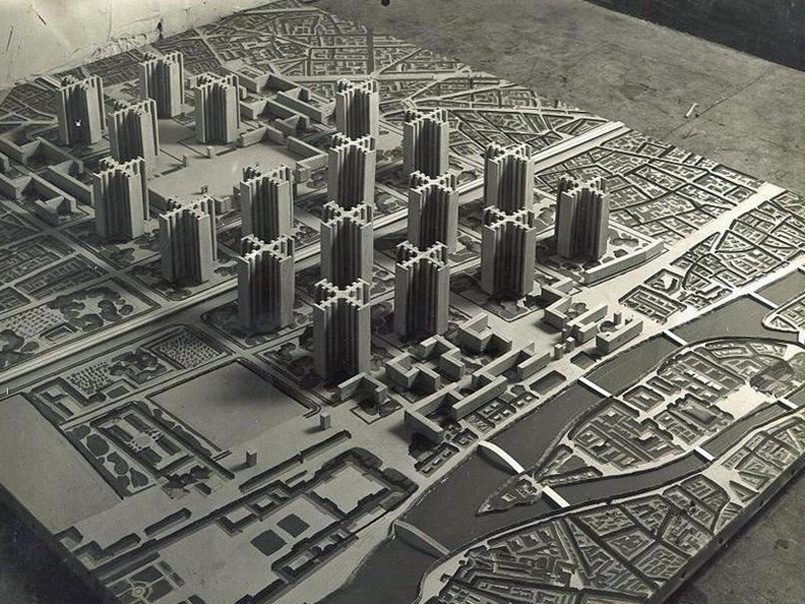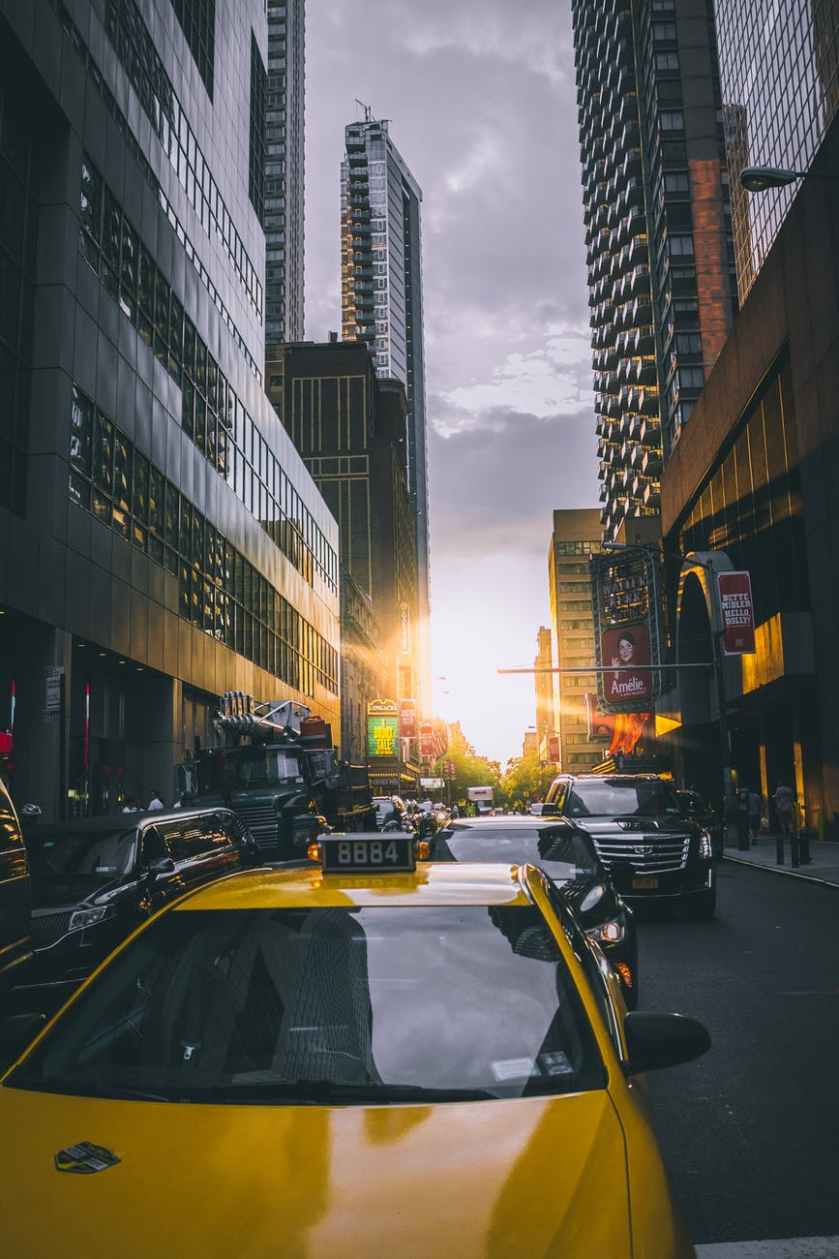medium.com/@martinopietropoli/il-senso-della-vita-d9e9c44fd884
Author: luca.monti.newurbanspirit
Art. 17 The panoramic society
Tabùeveryone feels the approach of great caudishing, or want to make big changes, but they struggle to imagine what will be their life, their city, their world after the change, and then understand which direction to take now …
When one thinks of one’s own convictions one is convinced that there are two extremes between which one can place oneself and that the more one thinks in a way the more a city will be produced, it is a world that is increasingly distant from the other.
But it is not like this … on the contrary it is the exact opposite.
I spy it with “literally” an image:
Have you ever taken a panoramic photo?
Well when you reproduce it on screen you will see that the two objects that appear farther away, in reality they are the closest ones!
a simple concrete example:
when you can not use dark shoes anymore, do you go gradually to the gray ones … or directly to the more colorful ones you have?
Another more complex example:
when in history a nation has been pushed towards an organization more and more of type A, returns gradually or instantly towards its opposite?
So, returning to a city, do you think that its transformation will produce something intermediate or instantaneously opposite?
well I think it’s easier for everyone to imagine a new world …
Art. 16 The computer city
Riflessioni “galleggianti”, TabùWe continue with the metaphors necessary to build the new maps of a city.Today I would like to offer you that of the computer city.Have you noticed how we more often use words from the computer vocabulary to describe parts of our lives?Accessibility, interface, network, input, output, switch, platform, portable, cluster, scheduler, task, control panel, updates, user, mobile, …… and if the city then began to look more and more like does a computer work?Ford announces to develop a traffic operating system; transport is always called mobility; citizens are called users of the city, the meetings are called clusters; infrastructures are called platforms.Let’s try to look ourselves from this new perspective ….
Art.15: There is no time to go anywhere on foot!!
TabùI have just finished reading this beautiful as disturbing article on Medium.
He speaks very well about a social tendency that in many cases already has significant effects on cities.It is about the “on demand economy”.
Lauren Smiley makes us notice that, in the very densely populated cities, there are already forms of butlers on request.By extending the concept, i want to invite you to reflect on a new culture of on demand that can push you to:
a society made up of people “locked in”, at home or in the office, to receive things, and people “shut out” to bring things to those closed inside.
I advise you to also look at the site helloAlfred proposing this kind of service in New York: as European, and Italian, I perceive a strange sense of “embarrassment” in those who built this site, almost as if they felt guilty and therefore have to justify why these “Alfred Managers do, in fact, the Alfred Butlers
Cover image by lego.com: https://mi-od-live-s.legocdn.com/r/www/r/catalogs/-/media/catalogs/characters/lbm%20characters/detail/70909_alfred_detail_1488.jpg?l.r2=667781930
Art. 14: Making each neighborhood a ‘center’: economic development for people and the environment
Riflessioni “galleggianti”Making each neighborhood a ‘center’: economic development for people and the environment
Fare di ogni quartiere un ‘centro’: lo sviluppo economico per le persone e l’ambiente
— Read on lorenzofioramonti.org/2018/02/04/fare-di-ogni-quartiere-un-centro-lo-sviluppo-economico-per-le-persone-e-lambiente/
Art.13: Le Corbusier GAME OVER
Riflessioni “galleggianti”, TabùFordism has given rise to housing models based on:
Being large, to aspire to understand within them all the “phases” housing (eg housing units – closed neighborhoods);
Being mass, or standardizing everything and producing it in large quantities;
Organization of the heavily parceled city that separates the dwelling from the other parts of everyday life, organizing life in the same way as Taylorist production is organized, based on the maximum functional specialization and rigid separation between who controls and who performs.
In these separated urban areas the perfect parallel between Fordist industrial alienation and housing alienation materializes: being able to perform in one place only one life operation always the same, the person begins to feel extraneous to his life understood as product result of a sequence, intense rhythms , minimum degrees of freedom.
The immense growth of the city was the obvious result of this model borrowed from industry, in fact the Fordist assumption is the need for a large demand to produce in large quantities, so it was obvious to make available large amounts of land to produce large amount of housing for large amounts of inhabitants.


Art.12: the beginning of The urban Age… or NEW MIDDLE AGES?!
Riflessioni “galleggianti”urbanage.lsecities.net/events/conflicts-of-an-urban-age-
When you read articles like these, in the end you are drunk. Yes, because in front of so many graphs, numbers, in such a large quantity you lose any chance of understanding something really important.
What I think I learned after the hangover? Well the thing that interests me most is that we are, I think, returning to a “Middle Ages without walls”.
What are you saying? … I’m saying that if the synthesis of all this stuff is that everything is concentrated in the cities, but that those cities are one percent of the whole earth, then all this reminds me a lot medieval city defended by walls surrounded by wild nature.
What do you think, do you also feel some of the new people of the Middle Ages?
Art.11: How much city do we need?
Riflessioni “galleggianti”, TabùI left the end. The question of the title comes after I have noticed another word that describes us and our cities, this word is: to share
If you share cars,
you share workspaces,
you share homes,
you share spending,
you share holidays,
you share life …..
Well, but then the whole city built to have:
everyone his house,
everyone his car ,
everyone his office,
everyone his spending,
….who will serve !?
And il i am right, so:
who will need all the parking spaces?
Who will all the houses need?
Who will all the shops need?
Who will all the offices need?
….. What do you think?
In the meantime I start to do some calculations ….
Art.10 :Yes, I Care!
Commercethis article that I share is illuminating: it photographs perfectly because in the cities, commerce is going into crisis.
Because it lacks the care of relationships that have always been at the base of exchanges between people … The shopping centers have counted hours, do not you believe it? then go back to Art.5 and to Art.2
A slightly toasty, briny smell wafted from the open kitchen, an umami of golden sesame seeds, green nori roasted over a flame and the northern sea on a balmy day. A spry young waiter stood at our table calmly explaining that we would be ordering all our food through the tabletop iPad. For the sum […]
Art. 9: the Cloud Flock Society
Riflessioni “galleggianti”, Tabù
To build new city maps it is necessary to proceed through metaphors, why? … but because to explore the new without getting lost, we must compare it a bit ‘to the “old”.
Then the first metaphor we will use is that of the flock of birds or rather of the “cloud”. Now look at the image that I propose to you, this is the synthesis of the current organization of cities and people.
What are you saying ?! Ehh !? But rest assured !!, you will tell me …
Calm … Let’s start from the cloud … See, words, we not only use them to tell, but often they themselves, words, tell us.
So the word cloud does not really tell you anything? Yet never as now is used everywhere: the way you move information, trends on the Web, but also friendships, but also people, but also tourists, but also those who work, …. Now, since all this is what happens in the cities, why should the cities remain immune? Remember the last blog?
So, perhaps, we could begin to finally give a clearer meaning to current vague expressions that I hear both in seminars, on TV, and in offices: widespread city, widespread redevelopment, functional mix. And nobody really knows what they want to say …..
I put it even clearer:
the city and the society , in the last century, was “a train” and now we are a cloud ….. someone still amazes about what is happening in contemporary cities ?!
You say yes, but then? Well then, in the meantime, we understand who we are and how we are already behaving in a new way, to know what and how we can organize ourselves and act to imagine a true new vision of our cities.








